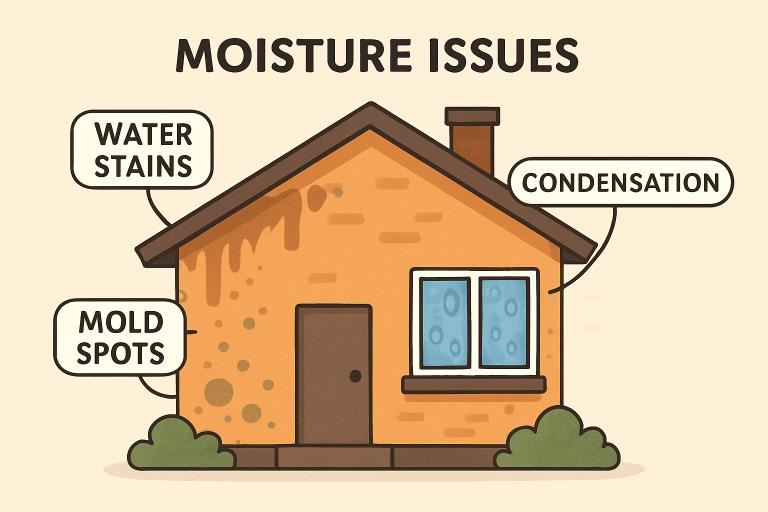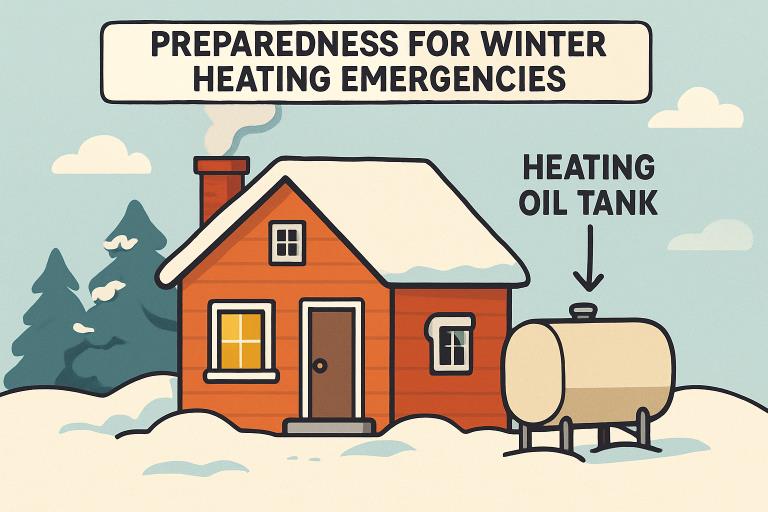Now Reading: How Moisture Can Damage Your Home Over Time
-
01
How Moisture Can Damage Your Home Over Time
How Moisture Can Damage Your Home Over Time

Key Takeaways
- Excess moisture jeopardizes the structural integrity of key home components.
- Persistent humidity can cause mold growth and compromise indoor air quality.
- Your possessions—including electronics and furniture—are at risk from unchecked moisture.
- Routine maintenance, vigilance, and timely intervention are essential for protection.
Moisture may seem harmless, but left unchecked, it’s a hidden danger with the potential to compromise your home’s structure, personal belongings, and even your family’s health. Many homeowners are unaware of the risks associated with moisture, and by the time signs of damage appear, repairs can become quite costly. To avoid surprises, it’s important to stay informed and proactive. If you suspect you’re dealing with water or humidity problems, consulting a restoration company Denver can help you mitigate damage and restore your home to a safe condition.
Understanding how moisture infiltrates your home and the types of harm it can inflict is essential for every homeowner. Water and humidity not only weaken structural components but also create an environment ripe for mold growth, which can destroy treasured personal items. Prevention and early intervention are key to protecting your property and ensuring a healthy indoor environment for your family.
By learning the causes and effects of moisture damage, you can be proactive in securing your property against one of the most underestimated threats. Awareness and a good strategy, such as installing ventilation and dehumidifiers, can save you from stressful repairs and unnecessary expenses.
Structural Damage from Moisture
When water seeps into your home, the fundamental components, including beams, floors, and walls, are put at risk. Wood, in particular, absorbs water, causing it to expand, warp, and eventually rot. Drywall breaks down quickly when continually exposed to moisture, which results in crumbling, sagging, or even collapse. If you see bubbling paint, soft patches, or discolored areas, these are likely indications that water is becoming a hidden menace within your home. Repairs become more complex and expensive as structural elements deteriorate, making early detection of water damage and swift action critical.
Mold and Mildew Growth
Moist and warm conditions are the perfect breeding ground for mold and mildew, commonly found lurking under floors, behind walls, and inside HVAC systems. The presence of mold isn’t just unsightly—it’s also a significant health risk. Spores can trigger allergies, respiratory distress, and even chronic health problems for sensitive individuals. Maintaining safe humidity levels and addressing leaks quickly will help deter these hazardous organisms from taking hold. Frequently inspecting bathrooms, kitchens, and basements can help you pinpoint potential trouble spots before mold can proliferate and endanger your home’s air quality.
Damage to Personal Belongings
Water damage doesn’t stop at your home’s structure. Everything from furniture to photos, electronics, and keepsakes can be compromised by excess moisture. Wood furniture can warp or even rot, textiles and photos develop mildew, and circuitry in electronics may corrode and short out. The cost—both financial and sentimental—can be tremendous. Simple actions, such as using desiccants in storage areas and regularly checking seldom-used spaces, can drastically reduce the likelihood of moisture ruining your cherished possessions.
Preventive Measures to Protect Your Home
Effective prevention and regular maintenance are your best defenses against moisture damage. Start in bathrooms, kitchens, and basements—areas most susceptible to humid conditions. Here are some actionable steps:
- Maintain Proper Ventilation:Keep air flowing by using exhaust fans or opening windows in places prone to moisture accumulation.
- Deploy Dehumidifiers:Particularly in basements and crawl spaces, dehumidifiers can reduce and control the level of ambient moisture.
- Conduct Regular Inspections:Survey your roof, pipes, and window seals for signs of leaks or deterioration.
- Improve Drainage:Clear your gutters and ensure downspouts move water away from the foundation.
- Seal Entry Points:Use caulk or weatherstripping to close gaps that could allow water to enter.
Recognizing Early Signs of Moisture Problems
Spotting moisture issues early can make the difference between a straightforward repair and a costly restoration project. Look for:
- Musty or earthy odors, especially in closed-off areas or after rainfall
- Mold or mildew stains on walls, floors, or ceilings
- Bubbling, peeling, or blistering paint and wallpaper
- Visible condensation on windows, pipes, or cold surfaces
Buckling wooden floors or warping of door frames
By staying alert and responding quickly, you can reduce the overall impact and cost of repairs. If you’re unsure whether that tiny leak or persistent condensation is a symptom of a larger issue, reach out to a qualified local specialist for a thorough assessment.
Conclusion
Moisture is often referred to as the “silent destroyer” for good reason. It can slowly but relentlessly erode your home’s integrity, damage valuable possessions, and negatively impact your well-being. Fortunately, consistent vigilance, routine maintenance, and timely intervention can keep moisture under control. By understanding the risks and using resources such as major home improvement publications and experienced local restoration services, you’ll be better equipped to protect your home against the hidden hazards of moisture damage.





















